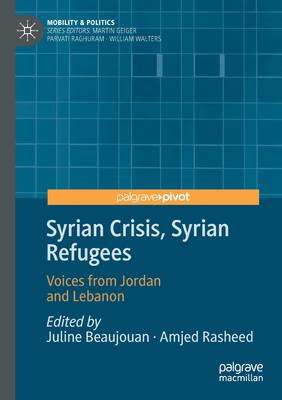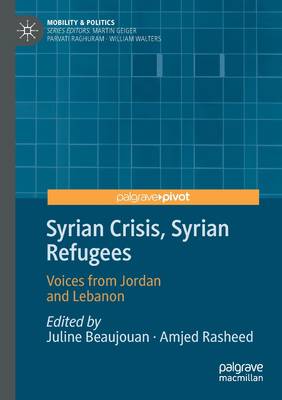
- Afhalen na 1 uur in een winkel met voorraad
- Gratis thuislevering in België vanaf € 30
- Ruim aanbod met 7 miljoen producten
- Afhalen na 1 uur in een winkel met voorraad
- Gratis thuislevering in België vanaf € 30
- Ruim aanbod met 7 miljoen producten
Zoeken
Syrian Crisis, Syrian Refugees
Voices from Jordan and Lebanon
€ 64,45
+ 128 punten
Omschrijving
This edited volume investigates the political and socioeconomic impact of the Syrian refugee crisis on Lebanon and Jordan, and these countries' mechanisms to cope with the rapid influx of refugees. The sudden population increase has resulted in severe pressures on infrastructures and services, as well as growing social tensions between the refugees and host communities. These chapters use a transdisciplinary approach to analyse the repercussions of the humanitarian tragedy at three different levels: 1) the changing governmental policies of the two countries towards the crisis; 2) the different perceptions of the Jordanian and Lebanese local communities on the Syrian refugees; and 3) the role played by NGOs and the civil society in both countries in dealing with protracted humanitarian emergencies.
Specificaties
Betrokkenen
- Uitgeverij:
Inhoud
- Aantal bladzijden:
- 163
- Taal:
- Engels
- Reeks:
Eigenschappen
- Productcode (EAN):
- 9783030350185
- Verschijningsdatum:
- 19/12/2020
- Uitvoering:
- Paperback
- Formaat:
- Trade paperback (VS)
- Afmetingen:
- 148 mm x 210 mm
- Gewicht:
- 226 g

Alleen bij Standaard Boekhandel
+ 128 punten op je klantenkaart van Standaard Boekhandel
Beoordelingen
We publiceren alleen reviews die voldoen aan de voorwaarden voor reviews. Bekijk onze voorwaarden voor reviews.






